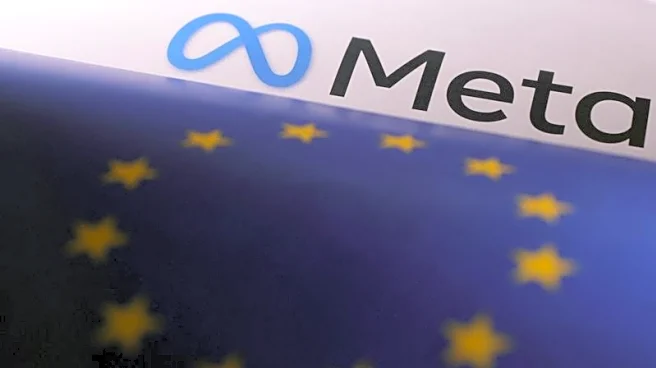What's Happening?
AnchorX has introduced the AxCNH stablecoin, pegged to the international version of the Chinese yuan (CNH), at the Belt and Road Summit in Hong Kong. This launch marks a significant move in the global stablecoin market, as countries aim to digitize their fiat currencies to enhance international demand and mitigate inflationary effects. The AxCNH stablecoin is designed to facilitate cross-border transactions within the Belt and Road initiative, which connects China to various regions through infrastructure projects. Additionally, BDACS has launched KRW1, a Korean won-pegged stablecoin, further intensifying the stablecoin race. Both stablecoins are overcollateralized, backed by fiat currency deposits or government debt instruments.
Why It's Important?
The introduction of the AxCNH stablecoin highlights the strategic importance of stablecoins in global finance. By digitizing fiat currencies, countries can increase accessibility and demand, potentially offsetting inflation caused by currency printing. This development also reflects a shift in financial systems, as blockchain technology offers faster, cross-border transactions. The U.S. government, facing a $37 trillion national debt, may find stablecoins beneficial in managing debt and boosting confidence in the U.S. dollar. Companies like Tether and Circle play a crucial role by backing stablecoins with government debt instruments, indirectly supporting bond markets and reducing government debt burdens.
What's Next?
The stablecoin market is likely to see increased competition as more countries and companies explore digital currency solutions. The U.S. may continue leveraging stablecoins to manage its national debt, while other nations might adopt similar strategies to enhance their currencies' global presence. Regulatory developments, such as the GENIUS Act, could further integrate stablecoins into banking activities, influencing financial policies and practices worldwide.
Beyond the Headlines
The rise of stablecoins could lead to significant shifts in global economic power dynamics, as countries with strong digital currency infrastructures may gain influence. Ethical considerations regarding privacy and financial inclusion may arise, as stablecoins become more prevalent. Long-term, stablecoins could redefine traditional banking systems, prompting discussions on regulatory frameworks and international cooperation.











